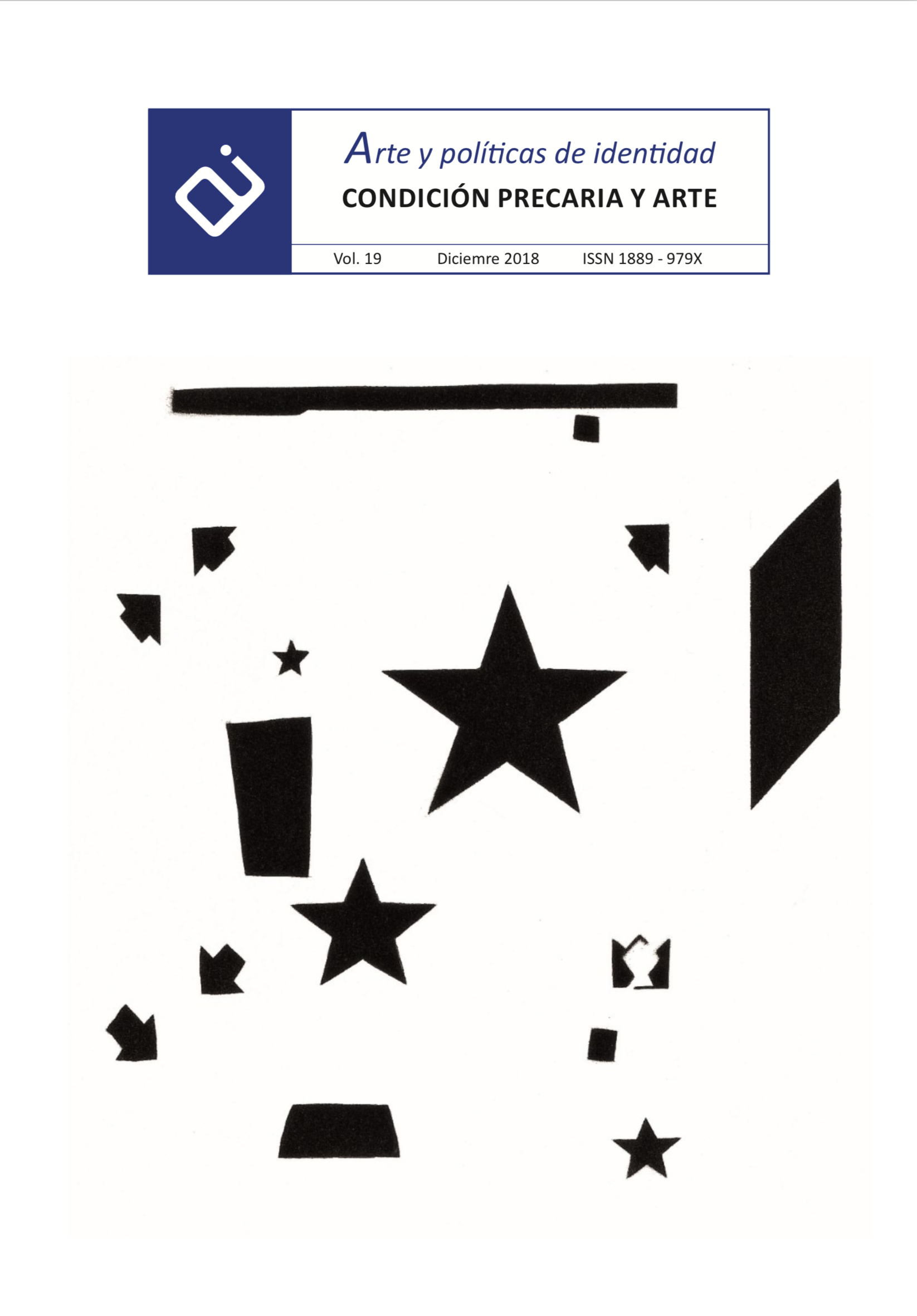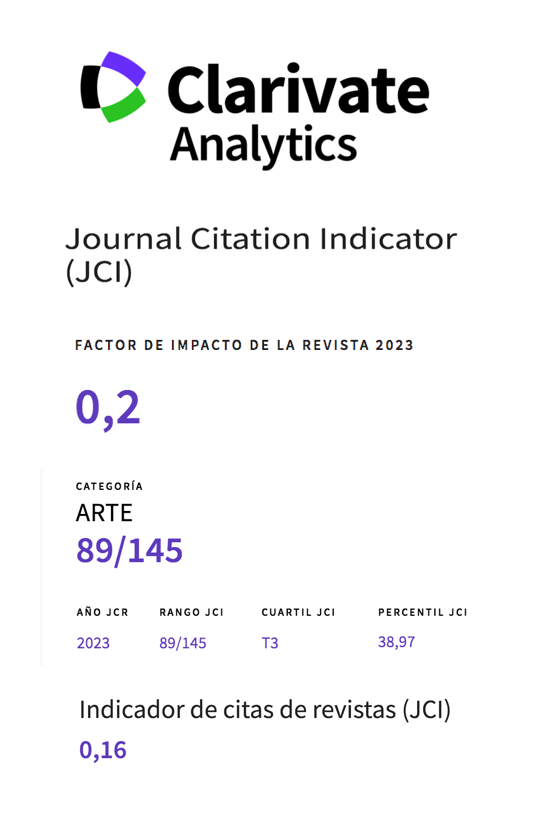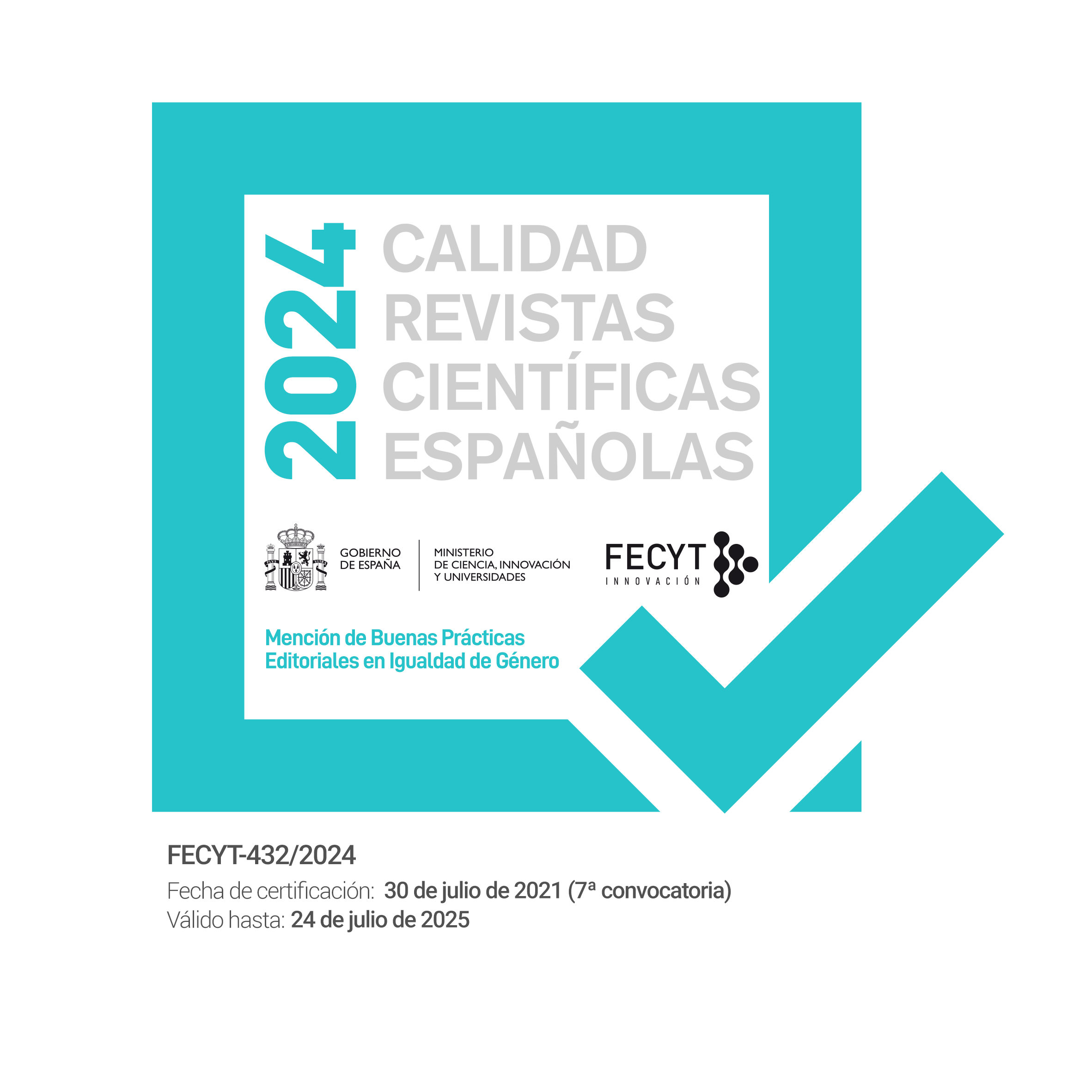Art, leisure and work on the electronic image era
Precariousness and auto-representation in Amalia Ulman ́s work
Abstract
This text discusses some changes that have occurred in the field of art, driven by the application of processes and tools related to digitaltechnologies, network and computers that, promote singular systemsof classification and representation. We focus in the confusion between concepts and practices related with leisure economy and work, and theimpact they have inside and over the network and.
Thanks to computers and the extensive communication network, new universes are possible. Offered by digital technologies and connections, there, the concepts of times and practical spaces have changed, affecting our social activities and the cultural economy. Issues that have to do with the artistic project of Amalia Ulman, whose proposal makes use of those platforms to ask about them.
Downloads
-
Abstract689
-
PDF (Español (España))579
References
Abidin, C. (2016). Visibility labour: Engaging with Influencers’ fashion brands and# OOTD advertorial campaigns on Instagram. Media International Australia, 161(1), 86-100.
Brea, J.L. (2004). El tercer umbral. Estatuto de las prácticas artísticas en la era del capitalismo cultural. Murcia, España: Ed. AD HOC, Serie ensayo, 3. Cendeac.
Brusadin, V. (2015). El fake y el asalto a la comunicación. Evolución de las prácticas artísticas y activistas de manipulación de los medios (1968-2014). (Tesis Doctoral). Barcelona, España: Universitat de Barcelona.
Coriat, B. (1992). El Taller y el Robot. Ensayos sobre el fordismo y la producción en masa en la era electrónica. Madrid, España: Editorial Siglo XXI.
Emmelhainz, I. (2014, enero, 27). Neoliberalismo y autonomía del arte, publicado en SalónKritik. Recuperado de https://groups.google.com/forum/#!topic/es.humanidades.arte/8eP-wMVdeko
Flusser, V. (2001). Una filosofía de la fotografía. Madrid, España: Editorial Síntesis.
Foucault, M. (2007). Nacimiento de la biopolítica: curso en el Collège de France (1978-1979). Buenos Aires, Argentina: Fondo de Cultura Económica.
Han, B. (2012). La sociedad del cansancio. Barcelona, España: Herder Editorial.
Laval, C. y Dardot, P. (2013). La nueva razón del mundo: Ensayo sobre la sociedad neoliberal. Barcelona, España: Gedisa.
Saidel, M. (2016). La fábrica de la subjetividad neoliberal: del empresario de sí mismo al hombre endeudado. Pléyade. Revista de Humanidades y Ciencias Sociales, 17, 131–154.
Senft, T. M. (2008). Camgirls: celebrity and community in the age of social networks. New York, USA: Lang.
Smith, G. (2007). Smoke and Mirrors: Amalia Ulman’s Instagram. OAR: The Oxford Artistic and Practice Based Research Platform,Issue 1. Recuperado de http://www.oarplatform.com/smoke-mirrors-amalia-ulmans-instagram/
Ulman, A. (2016). Amalia Ulman - Privilege 2015-16. Recuperado de http://privilege.amaliaulman.eu/about.html
Ulman, A., Black, H., y Shields, D. (2014, octubre, 28). Do You Follow? Art in Circulation 3 (transcrit).Mesa redonda, Londres. Recuperado de http://rhizome.org/editorial/2014/oct/28/transcript-do-you-follow-panel-three/
Ulman, A., y Bradley, P.K. (2018, mayo, 18). Amalia Ulman (Interview). Artforum Recuperado de https://www.artforum.com/interviews/amalia-ulman-on-her-new-book-and-internet-performances-75471
Ulman, A., y Glover, A. (2016, octubre, 31). Amalia Ulman: ‘I learn things from the performances that I wouldn’t have otherwise’ (Interview). Studio International. Recuperado de http://www.studiointernational.com/index.php/amalia-ulman-interview-privilege-labour-dance
Ulman, A., y Horning, R. (2014, diciembre, 19). Perpetual Provisional Selves: A conversation about authenticity and social media (Interview). Recuperado de http://rhizome.org/editorial/2014/dec/11/rob-horning-and-amalia-ulman/
Virilio, P. (1995, Agosto, 27). Speed and Information: Cyberspace Alarm!. CTheory.net. Recuperado de http://www.ctheory.net/articles.aspx?id=72
Zafra, R. (2017). El entusiasmo: precariedad y trabajo creativo en la era digital. Barcelona, España: Editorial Anagrama.
Zizek, S. (2008). Entrevista radiofónica en el programa: Against the Grain, sobre su libro: Violence. Recuperado de https://kpfa.org/episode/44651/
Works published in this journal are subject to the following terms:
- The Service of Publications from the University of Murcia (publishing house) keeps the published works’ copyrights, and favors and allows the reuse of these works under the license indicated in point 2.
- Works are published in the journal’s online edition under the license Creative Commons Reconocimiento-NoComercial-SinObraDerivada 3.0 España(texto legal). They can be copied, used, disseminated, transmitted and publicly exhibited, as long as: i) the author and original source of publication are cited (journal, publishing house and work’s URL); ii) they are not used for commercial purposes; iii) the existence and specifications of this license are mentioned.
3. Conditions for auto-file. It is allowed and encouraged that authors share electronically their pre-print version (the pre-reviewed version) and /or post-print version (the reviewed and accepted version) of their Works before the publication, since it promotes its circulation and dissemination. RoMEO color: green.










